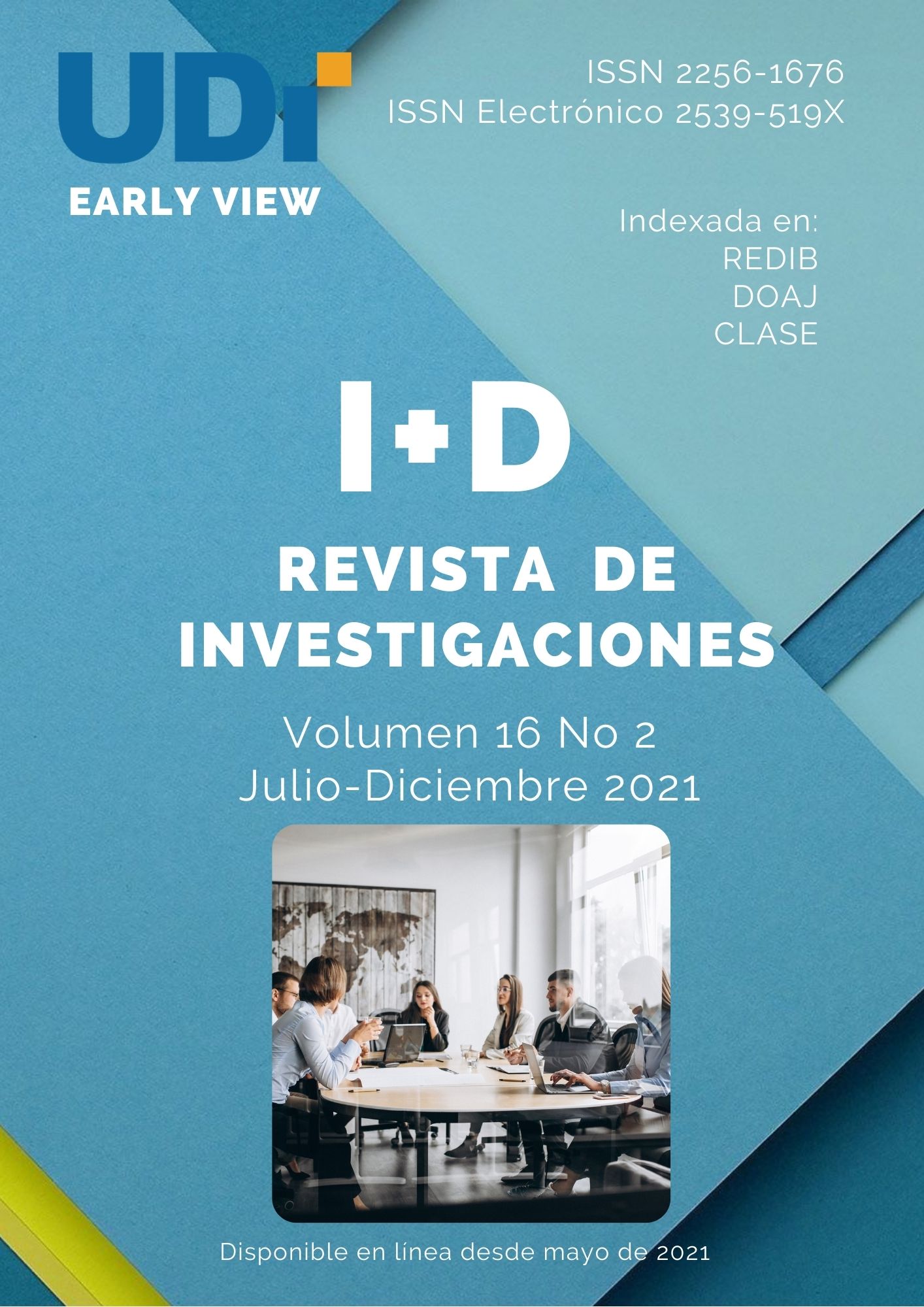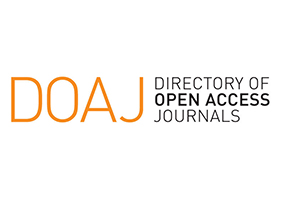Development of an experiential learning tool in the area of Occupational Safety and Health supported by Virtual Reality
DOI:
https://doi.org/10.33304/revinv.v16n2-2021014Keywords:
Experiential learning, design thinking, educational tool, virtual reality, occupational safety and healthAbstract
Occupational Health and Safety is a discipline whose implementation in organizations has become increasingly important in the recent years. For this reason, there is a need to find tools that support the teaching process and the transmission of knowledge to a professional life. Based on the Design Thinking methodology, the process of ideation and creation of a gamified experiential learning tool supported by Virtual Reality is generated. As a result, four scenarios were obtained that simulate the operation of workers in different productive sectors. The validation of the tool was done by means of a five-factor evaluation instrument, filled out by a test group that interacted with the program. The outcome of this study turned out positive since, the tool was endorsed by the users, who stated that this is an educational experience that makes it easier for them to learn the concepts by putting them into practice in a simulated environment.Downloads
References
Álvarez Torres, S. H., & Riaño Casallas, M. I. (2018). La política pública de seguridad y salud en el trabajo: el caso colombiano. Gerencia y Políticas de Salud, 17(35). https://doi.org/10.11144/Javeriana.rgps17-35.ppss
Arias-Flores, H., Jadán-Guerrero, J., & Gómez-Luna, L. (2019). Innovación educativa en el aula mediante Design Thinking y Game Thinking. Hamut’ay, 6(1), 82-95. https://doi.org/10.21503/hamu.v6i1.1576
Bhat, V. D. (2010). Aprendizaje Experiencial Una Guía para Educadores (1). https://studylib.es/doc/5078995/aprendizaje-experiencial--una-guía-para-educadores
Brown, T. (2008). Design Thinking. Harvard business review, 86(6), 84.
Burgos García, A. (2010). ¿Cómo integrar la seguridad y salud en educación? Elementos clave para enseñar Prevención en los centros escolares. Profesorado, Revista de Currículum y Formación del Profesorado, 14(2), 273-301.
Castaño Calle, R., González Alonso, F., De castro Hernández, R. M., & Escudero Vidal, J. (2019). Realidad Aumentada y Virtual en el marco de la discapacidad e inclusión desde una perspectiva universitaria. Comunicación y Pedagogía, 317-318, 73-77.
Castaño García, F., & González Morales, N. (2020). Creación de una aplicación móvil hibrida que aplique la metodología del Design Thinking y documente el producto de cada una las fases. [Universitaria Agustiniana]. https://repositorio.uniagustiniana.edu.co/bitstream/handle/123456789/1389/GonzalezMorales-Natalia-2020.pdf?sequence=4
Castillo-Vergara, M., Alvarez-Marin, A., & Cabana-Villca, R. (2014). Design thinking: how to guide students and business entrepreneurs in the application. Ingeniería Industria, 35(3), 301-311.
Cruz Carbonell, V., Hernández Arias, Á. F., & Silva Arias, A. C. (2020). Cobertura de las TIC en la educación básica rural y urbana en Colombia. Revista Científica Profundidad Construyendo Futuro, 13(13), 39-48. https://doi.org/10.22463/24221783.2578
de la Herrán, A. (2011). Técnicas Didácticas Para Una Enseñanza Más Formativa. http://radicaleinclusiva.com/wp-content/uploads/2018/01/teuniv.pdf
Dell’Era, C., Magistretti, S., Cautela, C., Verganti, R., & Zurlo, F. (2020). Four kinds of design thinking: From ideating to making, engaging, and criticizing. Creativity and Innovation Management, 29(2), 324-344. https://doi.org/10.1111/caim.12353
Eijkemans, G. (2003). El Programa de Salud Ocupacional de la Oficina Central de la Organización Mundial de la Salud (OMS). En Red Mundial de Salud Ocupacional. https://www.who.int/occupational_health/publications/newsletter/en/gohnet5s.pdf
Escartín, E. R. (2000). La Realidad Virtual, una Tecnología Educativa a Nuestro Alcance. Revista de medios y educación, 15, 5-21.
Hernández Palma, H., Monterrosa Assia, F., & Muñoz Rojas, D. (2017). Cultura de prevención para la seguridady salud en el trabajo en el ámbito colombiano. Advocatus, 14(28), 35-43. https://doi.org/10.18041/0124-0102/advocatus.28.889
IDEO. (2014). Que es Design Thinking, en que consiste el proceso. Design Thinking. https://www.designthinking.es/inicio/
Lobo-Rueda, M. A., Paba-Medina, M. C., & Torres-Barreto, M. L. (2020). Análisis descriptivo de experiencias gamificadas para enseñanza y aprendizaje en educación superior en ingeniería. Revista ESPACIOS, 41(16), 21.
López Jiménez, S. F., Lesmes Ortiz, L. V., Álvarez Ochoa, M., Lino Gamiño, J. A., & Reyes Fong, T. (2020). Generación de proyectos de emprendimiento aplicando la metodología DesignThinking. Tecnología Educativa Revista CONAIC, 7(1), 86-91.
Mintrabajo. (2020). Sistema de Gestión de Seguridad y Salud en el Trabajo. https://www.mintrabajo.gov.co/relaciones-laborales/riesgos-laborales/sistema-de-gestion-de-seguridad-y-salud-en-el-trabajo
Moreno Mendoza, E. F., & Coronel Arenas, M. F. (2018). Hábitos que impiden la adaptación y adopción de la lectura en estudiantes de Administración de Empresas. Revista Científica Profundidad Construyendo Futuro, 9(9), 2-9. https://doi.org/10.22463/24221783.2457
Organización Internacional del Trabajo. (2011). Sistema de gestión de la SST: una herramienta para la mejora continua (1.a ed.). https://www.ilo.org/safework/info/publications/WCMS_154127/lang--es/index.htm
Paba-Medina, M. C., Acosta-Medina, J. K., & Torres-Barreto, M. L. (2020, junio 2). Design of a gamified tool for the development of citizenship competencies. 6th International Conference on Higher Education Advances (HEAd’20). https://doi.org/10.4995/HEAd20.2020.11136
Razzouk, R., & Shute, V. (2012). What Is Design Thinking and Why Is It Important? Review of Educational Research, 82(3), 330-348. https://doi.org/10.3102/0034654312457429
Romero Ariza, M. (2010). El aprendizaje experiencial y las nuevas demandas formativas. Revista de Antropología Experimental, 10, 89-102.
Smith, M. K. (2010). David A. Kolb on experiential learning. The encyclopedia of pedagogy and informal education. https://infed.org/mobi/david-a-kolb-on-experiential-learning/. Retrieved: insert date
Villaescusa Alejo, M. . I. (2019). Mirar el mundo con los ojos del otro. El mapa de empatía. Aula de Secundaria, 34, 25-29.












